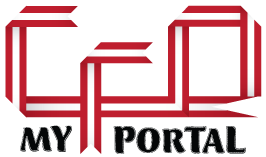During the past several years, business management technology has evolved. Advancement in technology has simplified the processes of data capturing and has provided unlimited capacity and capability to analyze the data and use it for the management of businesses.
To most people, software for accounting and enterprise resource planning (ERP) software are interchangeable, however, in reality, these are two very different things, and they aren’t interchangeable.
Accounting Software
Accounting mainly deals with quantitative data. The role of accounting is to capture, retain, and report transactions that involve income, expenses, assets, and liabilities.
Accounting, in today’s world, is carried out using the software, that may be cloud-based (using web) or stored locally (on the company’s computer or server).
The role of bookkeeping software is to record business transactions to facilitate an accountant in generating financial details. The financial information may consist of a balance sheet, statement of accounts, trial balance, statement of cash flow, profit and loss, assets, and taxes, among other items.
The business accounting software, previously, had limited capabilities. Lately, adding new features to the existing software are making lives of accountants and entrepreneurs easy. For instance, software like Quickbooks, Xero Accounting, SAGE have added more functions, including inventory management, purchase orders, and timesheets, to name a few.
Most of legacy small business accounting software providers are advancing towards cloud service. The data remains online, and it enhances the ability of the bookkeeping software to interface with other online tools. A great example is Hubdoc, a document management system that works with the business accounting software and helps in allocating receipts data to the transactions.
Business accounting software provides many benefits for the company, such as accelerating the work of financial statements, avoiding miscalculation, improving job efficiency, automating various transactions, assisting companies in the decision-making process by presenting accurate data, and figuring the financial condition of the company at any time. In short, bookkeeping software provides a good snapshot of business financial health.
ERP System
On the other hand, ERP system is a different ball game altogether. An ERP system collects data and transaction from the various business processes into a centralized data warehouse.
It is a suite of software that business or organization use to manage day-to-day activities such as accounting, HR, manufacturing, procurement, project management, supply chain, CRM. ERP system integrates these various functions into one complete system to streamline processes and information across the entire organization. ERP system uses machine learning and AI to improve visibility and efficiency across every aspect of the business. ERP can be on cloud, on-premise, and hybrid. They can be of different size for small to a huge corporation. Some well-know ERP companies are SAP, Oracle Netsuite, MS Dynamic, ZOHO, Odoo, to name a few.
Difference
Although the integrated accounting system and financial module in ERP system have some similarities. For instance, both include financial accounting functionality such as double-entry bookkeeping, a general ledger, and journal and account reconciliation capabilities. Both also have tax analysis and reporting features, and also help with budgeting and planning. However, as an “enterprise resource planner” manage all aspect of the business.
Some of the vital differences are:
- Bookkeeping software does not include sales and customer relationship management.
- ERP software often has a CRM module that lets you access and updates contact information and sees the history of previous communications.
- Accounting software is limited in providing real-time data. Since ERP have integrated all the system of organization, the output we get is real-time
How to Choose Best Accounting System for Small Business:
The best answer is “the one which provides you value for money”. A small businesses lack financial and funding flexibility therefore they have to find out the best possible solution within their budget. Another aspect is implementation, operation, control and sustainability of selected business accounting system.
Although there are several cost affective ERP software available in the market but still in order to operate such system, small businesses have to invest in people and IT infrastructure (physical or virtual). Whereas for the growing businesses, it is in their best interest to select enterprise resource planning software.
Online solutions of accounting packages are considered as the best accounting system for small business. Quickbooks online and Xero are examples of cost effective solutions for a small scale company. These systems are kept on evolving and they are even capturing financial and non-financial data which is enough for the operations of small businesses.
Why mycfoportal.ca?
We, at mycfoportal.ca, provide free consultation to the clients about the best accounting system for small business. Although we believe that business scale is not a consideration in selection of a business accounting system but it has been considered as a major factor for this decision making. We have seen that medium to large enterprises are also using Quickbooks or Xero as their business accounting solution.
Our affordable packages include hassle free services for the small and medium (SME) businesses to outsource their accounting function and concentrate on operations and commercial aspects of their business. We are a team of highly experienced specialists covering all aspects of business planning, accounting and consulting.


WOW. A comprehensive article on accounting software vs ERP!!!